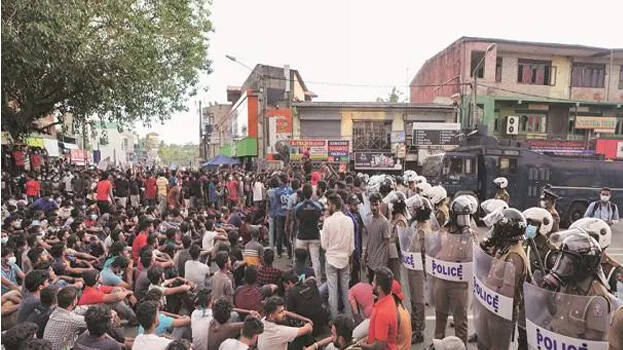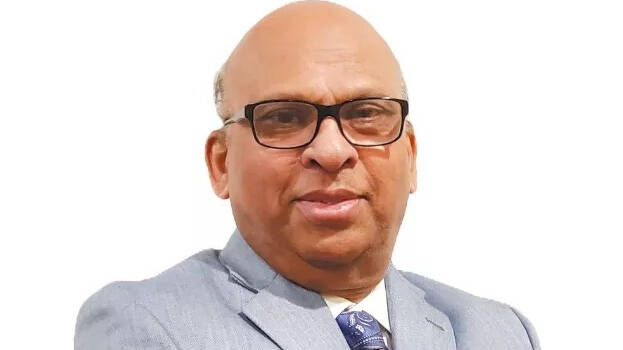




From every nook and corner of the political world, we hear the question as to why Sri Lanka, a democratic country fell as it did. Answers vary as perspectives diverge. Vested interests apart, the answer right on the dot is that it is the result of not cutting the coat according to the cloth or simply put, spending beyond the means. The debt trap was tightening on Sri Lanka like a running noose only as a consequence of the government's economic mismanagement.
Sri Lanka, once a rich and prosperous country, plunged into uncertainty and economic slump and impoverished itself as it took arms against its own people. As the Sinhala-majority government began to show racist and linguistic discrimination against the Tamil people, protests and struggles grew into a civil war that lasted for decades. Millions of lives were lost. Although the government suppressed the civil war through genocide, many of the issues raised by the LTTE still remain. After the civil war, as the country revived its major sources of income such as tourism and agriculture, the mismanagement on the part of the government started backfiring on the nation.
Even after 74 years of independence, Sri Lanka is a country that has not achieved self-sufficiency in anything, including food security. This is due to the carelessness and oversight in policy making of successive governments in managing the economy.

By the statistics of 2021, Sri Lanka's external debt is estimated at $ 35 billion. More than 10% of this is loans from China. But most of the projects built on Chinese loans bore no fruit. Since 1971, many of Sri Lanka's infrastructure development projects have been built with loans from China. When Mahinda Rajapaksa became the President in 2005, he enhanced Chinese loans. Many Chinese projects at the time became burdens and liabilities for Sri Lanka, for example, the port and international airport built in the President's constituency, two projects that were of no use to anyone but turned the country into a huge debt trap all the same. China has so far not responded favourably to Sri Lanka's demand for a restructure in repayment. Most of the projects implemented by China in Sri Lanka are now leased by themselves. No doubt, they have vested interests in it as is evinced by their similar operations in other countries.
There are also allegations that the decisions of the Sri Lankan government were not discussed in the cabinet or in the confidence of the opposition. President Gotabhaya Rajapaksa's cabinet members do not have the privilege of dissent.
Gotabhaya's brother Mahindra Rajapaksa is the Prime Minister. Another brother, Basil Rajapaksa, is the finance minister. All their children are ministers. All the remaining ministers are sycophants. Democracy is a facade; it is clearly monarchy. Consequently, the agreements made by the Rajapaksas with foreign countries are not transparent. The allegation that the Rajapaksa family is committing massive corruption at the expense of national interests is also strong. It is observed that the mysterious dealings of the Rajapaksa government have ruined the country financially.
The Rajapaksas argue that the current economic crisis in the country is due to Covid. Since Covid is a global phenomenon and a tragedy that has affected both developed and underdeveloped poor countries, it cannot be said that it caused a setback for Sri Lanka alone.
It is a fact that Covid has adversely affected Sri Lanka's main source of income, tourism. Apart from Covid, the death of 270 people in an attack by Muslim terrorists on Easter 2019 has adversely affected Sri Lankan tourism. But more than all this, it was the policies of the Rajapaksas that devastated the economy. Tax exemptions were one of the main promises in the presidential election that followed the Easter attack. Soon after the victory, 30 per cent of the people were exempted from tax due to the tax deduction imposed by Gotabhaya Rajapaksa. With this, international rating agencies downgraded Sri Lanka's credit rating. Sri Lanka's foreign exchange reserves plummeted due to subsequent debt. In the meantime, causing double jeopardy, the government banned the use of fertilizers and imports to promote organic farming. The proposal to go for organic farming overnight was a major setback for the agriculture sector. Food production has declined significantly.
According to figures released by the government itself, tea production has been at an all-time low for the past 13 years. All in all, Tea cultivation, which used to earn $ 1.5 billion in foreign exchange for Sri Lanka, has suffered a severe loss. The livelihood of thousands of farmers was also destroyed.
Sri Lanka is in a major foreign currency crisis as exports and imports stagnate. Sri Lanka does not currently have foreign exchange reserves for imports or loan repayments. India has now lent $ 1 billion to contain the country's famine. Countries with deepening economic crises are more likely to move towards civil unrest. The situation mandatorily demands the help of neighbouring countries. Sri Lanka also needs the help of the International Monetary Fund to settle its debts and liabilities. On the other hand, the people have to choose efficient and effective rulers in the future. Eying huge commissions, the rulers anywhere may initiate unwieldy projects. If not the sycophants, the dissenters should learn lessons from the Sri Lanka crisis and avoid self-destructive moves.
(The author is Chairman of World Hindu Parliament and former President of FOKANA)
mail: madhavanbnair.com